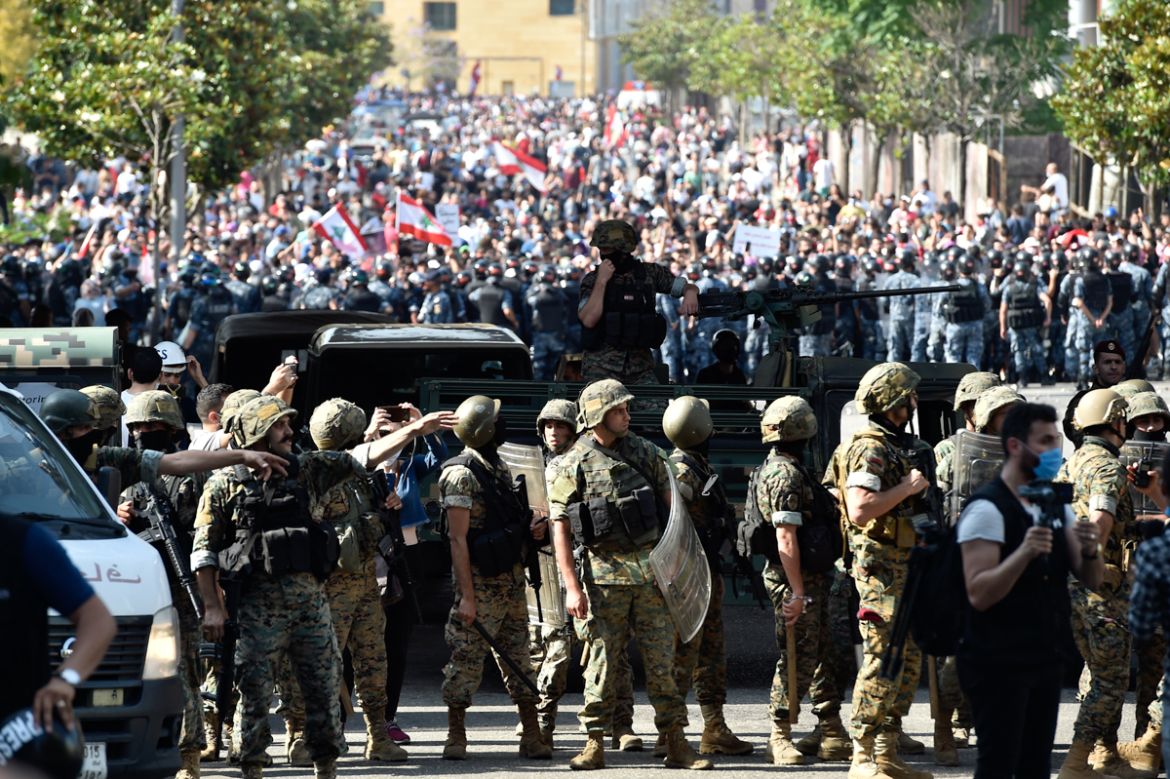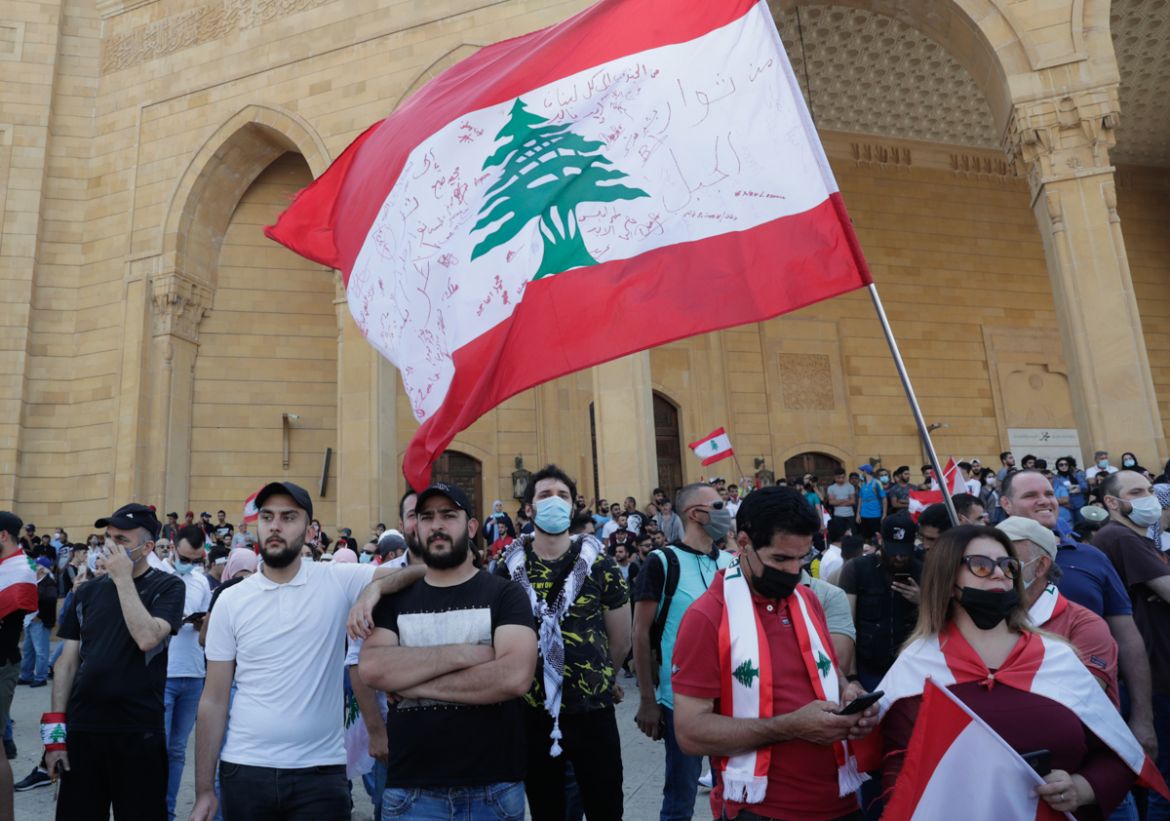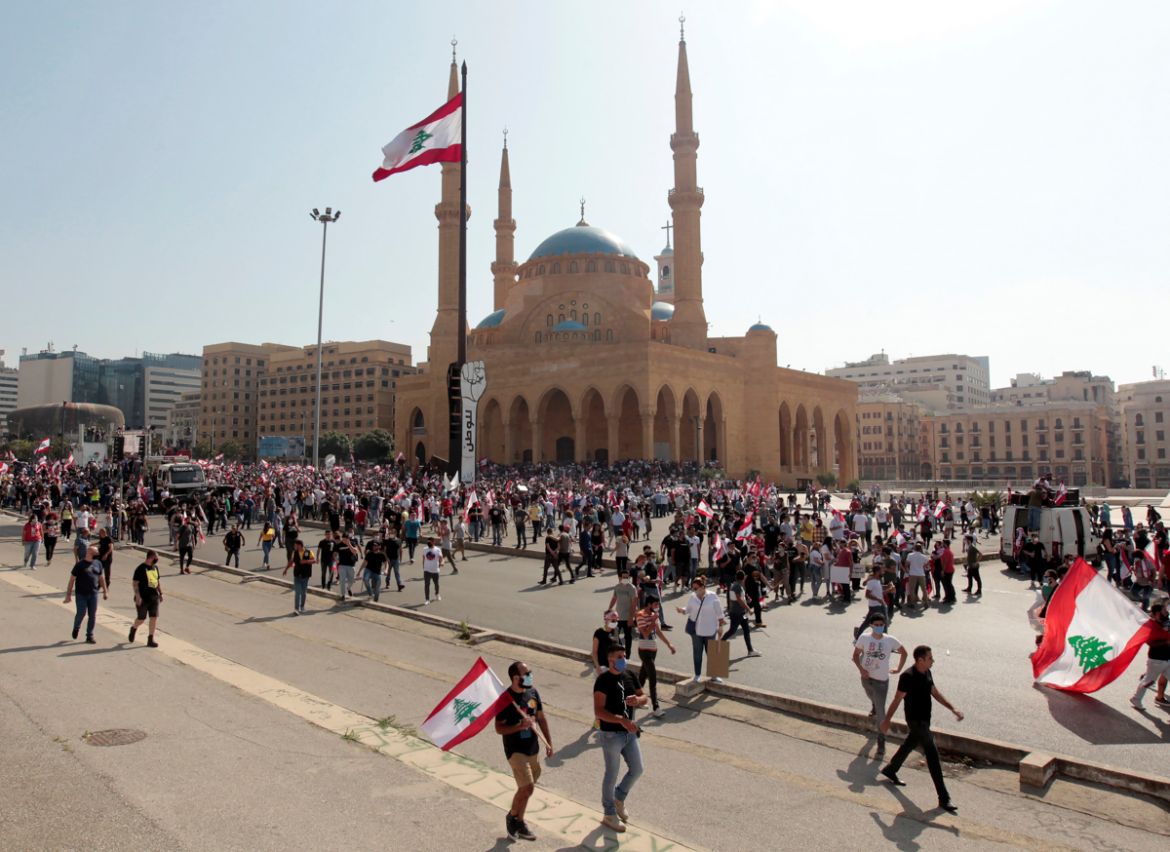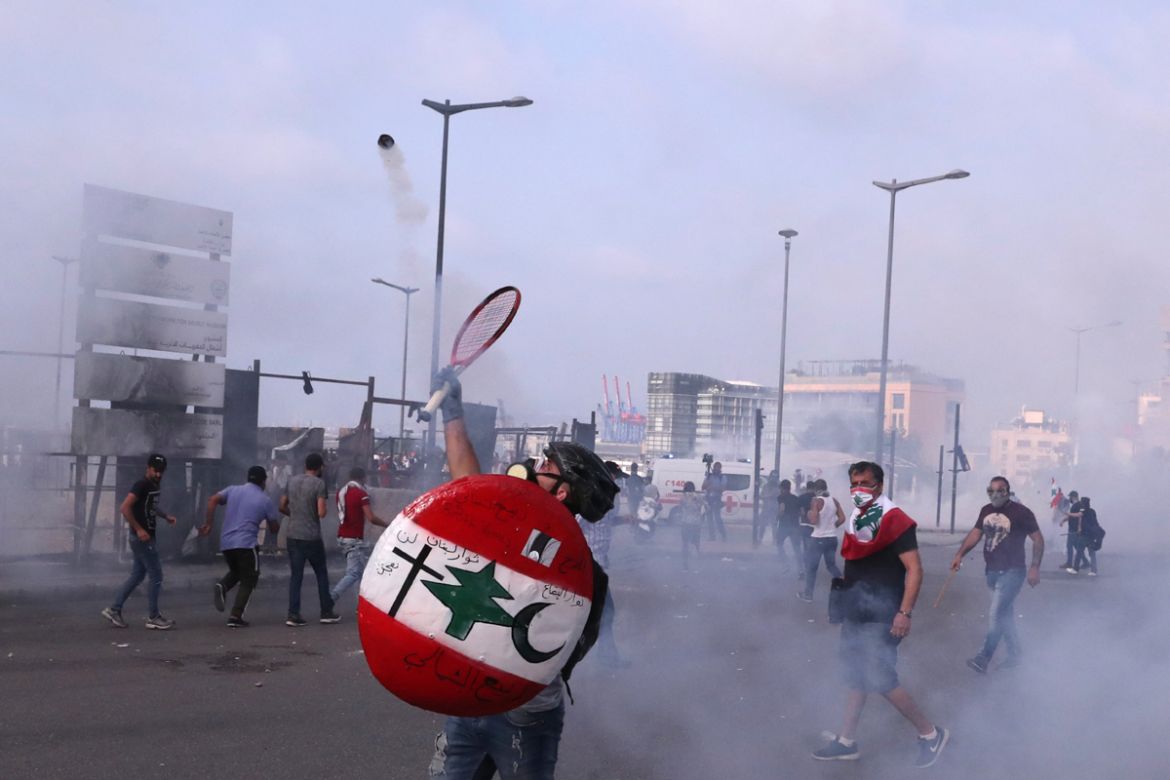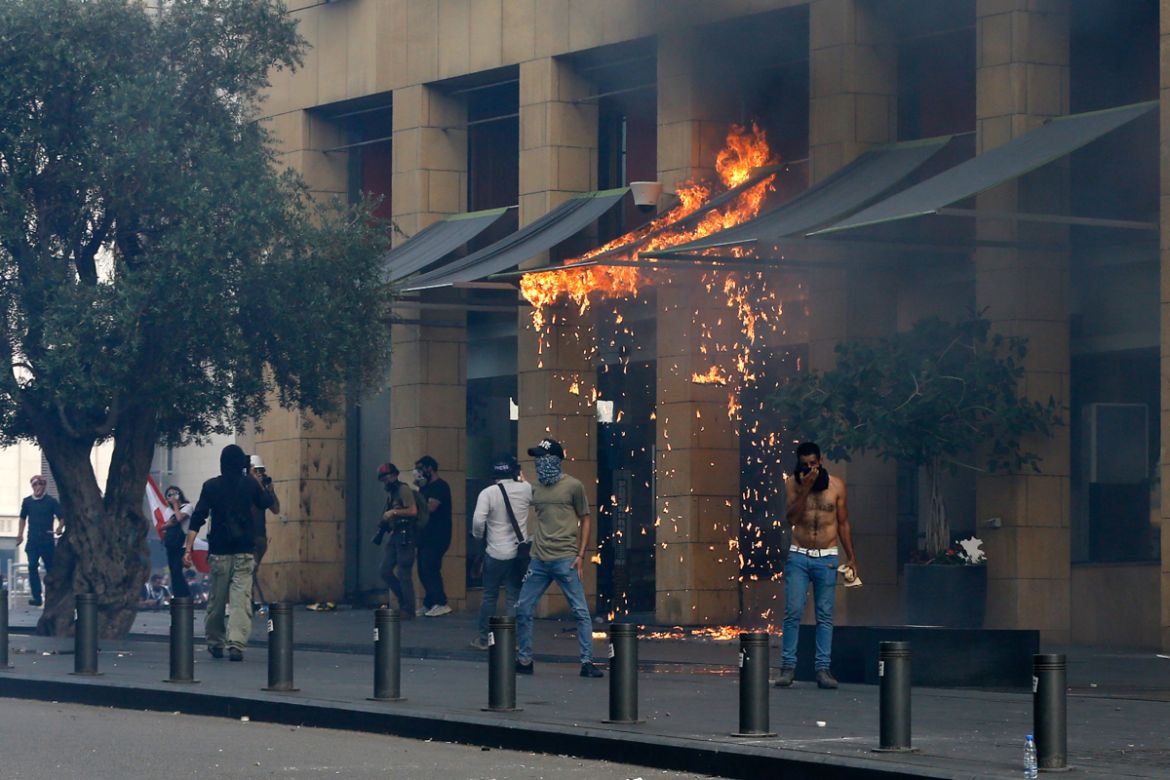In Pictures
In Pictures: Protest erupts in Lebanon amid economic woes
Protesters take to the streets to voice outrage over the slow pace of economic reforms by the new government.

Lebanese protesters took to the streets on Saturday to voice outrage over the government’s handling of a deep economic crisis, with security forces firing tear gas and rubber bullets to disperse demonstrators.
The first big protests since the government rolled back coronavirus lockdown measures come as Beirut negotiates an International Monetary Fund package it hopes will secure billions of dollars in financing to prop up its collapsing economy.
Protesters burned garbage bins and ransacked a furniture shop in the capital’s upscale shopping district, smashing its storefront and hauling out a couch to block a road.
“We came on the streets to demand our rights, call for medical care, education, jobs and the basic rights that human beings need to stay alive,” said 21-year-old student Christina.
Lebanon has been rocked by a series of political crises in recent years before an economic crisis helped trigger unprecedented mass protests in October.
The demonstrations forced the government to resign, and a new one headed by Prime Minister Hassan Diab was approved by parliament in February, tasked with launching reforms and combatting corruption.
But many Lebanese say the new administration has failed to find solutions to the country’s manifold problems, including a grinding recession and spiralling inflation.
